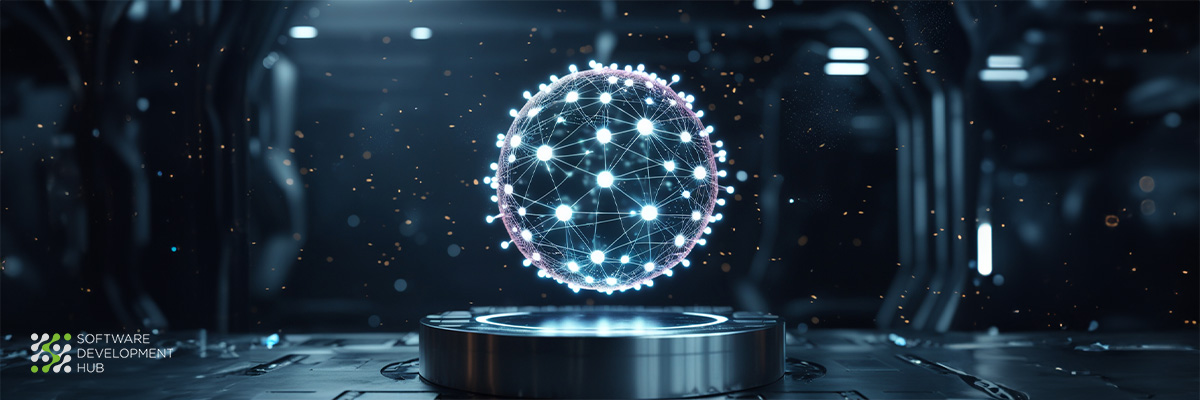The Future of Software Engineering with AI: What Every Developer Needs to Know
Software engineering with AI has reached a pivotal moment that demands immediate attention from every developer. Researchers at the US Department of Energy's Oak Ridge National Laboratory project that AI could replace software developers as early as 2040. The Evans Data Corporation survey reinforces this timeline—nearly 30% of 550 software developers believe artificial intelligence will replace their development efforts within the foreseeable future.
Approximately 75% of developers reported using AI tools for software engineering-related work last year. Gartner's analysis indicates that by 2027, 50% of software engineering organizations will implement software engineering intelligence platforms to measure and enhance developer productivity. The data reveals an unexpected pattern: AI tools provide greater benefits to experienced developers than beginners.
What does this mean for software engineers at different career stages? We will examine how AI reshapes software engineering workflows, analyze essential tools for 2025, identify critical skill requirements, and determine whether AI functions as a replacement or enhancement tool. For developers concerned about career security or eager to capitalize on emerging opportunities, understanding these developments becomes essential for sustained success in the field.
How AI is Changing Software Development Today
Software development workflows have undergone substantial changes as AI integration reaches critical mass. According to industry data, 70% of programmers report that AI coding tools provide measurable advantages in task completion. This shift affects multiple stages of the development lifecycle, creating new efficiencies and capabilities.
AI-assisted code generation and completion
Modern AI-powered development tools interpret natural language descriptions and generate code suggestions or complete functions. IBM watsonx Code Assistant, GitHub Copilot, and Tabnine demonstrate this capability by helping developers write code faster with fewer errors while automating repetitive coding tasks. These tools particularly benefit developers facing blank-page syndrome, providing initial code structures that accelerate project initiation.
Automated testing and debugging with AI
AI systems now detect bugs, vulnerabilities, and code inefficiencies automatically while proposing fixes and optimizations. These testing platforms generate adaptive test cases and prioritize critical testing scenarios, which improves both software quality and security measures. The automation extends to test case generation and execution, with AI analyzing codebases to identify testing requirements and reduce manual testing overhead. Some advanced platforms predict potential errors by analyzing database content patterns.
AI in DevOps and deployment pipelines
Project management and DevOps processes benefit from AI automation of routine tasks, enhanced time estimation accuracy, and optimized continuous integration/continuous deployment pipelines. AI-driven resource allocation tools schedule tasks more efficiently and provide real-time system performance monitoring. The technology automatically resolves merge conflicts, prioritizes build jobs, and executes rollback procedures when deployment anomalies occur.
Natural language processing in user interfaces
Natural language user interfaces (NLUI) convert linguistic elements—verbs, phrases, and clauses—into functional UI controls. These interfaces appeal to developers and end-users due to their speed and usability advantages. Natural language search functionality attempts to interpret question intent and deliver targeted responses. However, current NLUI implementations struggle with ambiguous input interpretation, particularly regarding modifier attachment and anaphora resolution challenges.
Essential AI Tools for Software Engineering Teams
Successful software engineering teams require strategic tool selection that enhances productivity across the development lifecycle. The AI tools landscape has matured rapidly, with specific platforms emerging as industry standards for different development functions.
GitHub Copilot: AI-Powered Code Assistance
GitHub Copilot maintains its position as the leading AI pair programming solution, offering contextual coding suggestions, automatic documentation generation, and integrated pull request support within development environments. The system understands developer intent and provides context-aware, multiline suggestions that accelerate productivity and rapid prototyping workflows.
TensorFlow and PyTorch: Machine Learning Development Frameworks
Developers building AI-powered applications rely on TensorFlow and PyTorch as foundational frameworks for model development. TensorFlow, developed by Google, provides a flexible ecosystem of tools and libraries that enable researchers to advance ML capabilities. PyTorch, developed by Meta, offers an intuitive interface with dynamic computational graphs that simplify development and debugging processes.
The frameworks serve different optimization purposes. TensorFlow excels in production environments and mobile deployment scenarios, while PyTorch performs better in research settings due to its Pythonic nature.
AI-Driven Testing Solutions
Testing automation has evolved significantly, with 81% of teams now incorporating AI into their testing workflows. Applitools delivers end-to-end test automation with AI integration, enabling companies like EVERFI to save $1 million annually by reducing testing time from hours to seconds. Rainforest QA provides AI-accelerated testing that operates up to 3x faster than open-source frameworks.
Project Management and Productivity Platforms
ClickUp's AI platform streamlines development processes from sprint planning through documentation, featuring AI-generated technical documentation and automated project summaries. Asana AI supports team workflows by handling routine tasks, allowing developers to focus on strategic development work.
Wrike employs machine learning to predict project risks, analyzing workspace complexity to identify potential blockers before they impact development timelines. These AI-driven project management tools increase operational efficiency, reduce costs, improve decision-making processes, and prevent developer burnout by eliminating repetitive administrative tasks.
Essential Skills for Developers Working with AI Systems
The question facing every developer today is straightforward: which skills will ensure career sustainability as AI reshapes our industry? The answer requires understanding both technical capabilities and strategic thinking approaches that complement AI systems rather than compete with them.
Machine Learning Foundation Knowledge
Developers must grasp core machine learning concepts to work effectively with AI-powered development tools. Understanding supervised and unsupervised learning, neural networks, and deep learning principles enables better utilization of AI coding assistants and construction of AI-powered applications. Google's Machine Learning Crash Course provides practical introductions to regression, classification, and neural network architectures. This foundational knowledge helps developers understand how ML models learn to predict outputs, making them more effective at directing AI tools.
Ethical and Responsible AI Development
Responsible AI development involves creating systems that benefit society while minimizing negative consequences. Core principles include fairness, transparency, privacy, accountability, and inclusiveness. Developers must learn to identify and mitigate biases in training data and implement mechanisms for AI explainability and transparency. These skills become increasingly important as AI systems handle more critical business and user-facing functions.
Domain Expertise and Business Understanding
Domain knowledge has gained significant value for effective AI implementation. Domain experts help translate real-world problems into well-defined machine learning tasks, identify relevant data sources, and ensure AI solutions address actual business needs. They also understand domain-specific constraints that must be considered when deploying AI solutions. This expertise allows developers to build more targeted and effective AI applications.
Software Engineering Roles: What Changes Ahead?
Software engineering stands at the threshold of fundamental change that extends far beyond adopting new tools. This evolution will reshape how developers work, how teams organize, and how software gets built from concept to deployment.
Agentic AI Systems: Beyond Simple Automation
What happens when AI systems stop being tools and start becoming autonomous collaborators? Agentic AI represents this shift from simple assistants to systems that orchestrate entire workflows with minimal human input. Unlike current AI tools that handle isolated tasks, agentic systems proactively identify problems, suggest solutions, and implement changes across the development lifecycle.
Deloitte projects that 25% of companies using generative AI will launch agentic AI pilots by 2025, expanding to 50% by 2027. These autonomous agents will manage complex multi-step workflows that traditionally required multiple human roles, allowing developers to focus on higher-level innovation and strategic problem-solving.
The Replacement Question: Reality vs. Perception
Will AI replace developers entirely? The answer depends on technological breakthroughs that remain uncertain. Complete replacement would require artificial general intelligence (AGI)—machines indistinguishable from human cognitive abilities. A survey of 352 AI experts indicates a 50% chance we'll have AGI before 2061.
Current evidence suggests AI functions as a productivity enhancer rather than a replacement. Even with sophisticated AI-generated code, humans remain essential for reviewing outputs, ensuring code performs intended operations, and addressing edge cases that AI systems struggle to anticipate.
Role Evolution: From Implementation to Orchestration
The developer's fundamental role is shifting from implementation to orchestration. Rather than writing every line of code, developers increasingly guide AI systems to produce desired outcomes. This transformation requires different skill combinations, with greater demand for senior and staff engineers who can navigate complex architecture and review AI-generated code effectively.
Front-end developers face a particularly interesting transition. As AI handles more UI coding tasks, these specialists will likely evolve into full-stack roles that drive end-to-end innovation. The question becomes: how quickly can current developers adapt to these changing requirements?
Industry Projections: 2025 and Beyond
The timeline for change appears aggressive. By 2028, 90% of enterprise software engineers will use AI code assistants, compared to less than 14% in early 2024. Organizations are consolidating their toolchains—50% of enterprises will abandon individual best-of-breed tools for integrated DevOps platforms by 2025.
Financial investment patterns also indicate shifting priorities. By 2028, 30% of global enterprise spending on GenAI technologies will target open GenAI models tuned for domain-specific applications. The most successful organizations will balance automation with human oversight, considering business criticality, risk factors, and workflow complexity in their AI adoption strategies.
Conclusion
Software engineering with AI has moved beyond experimental adoption into operational reality. The evidence we have examined confirms that AI tools currently enhance developer capabilities rather than replace human expertise entirely. However, this analysis reveals a more nuanced transformation occurring across the industry.
What becomes clear from current implementation patterns is that AI amplifies existing skill differentials. Experienced developers gain disproportionate advantages from AI assistance, which may challenge traditional assumptions about technology democratization. This reality requires organizations to reconsider their talent development strategies and team composition approaches.
The skill requirements for developers are expanding beyond traditional programming competencies. Machine learning fundamentals, data pipeline management, AI system collaboration, and ethical development practices now constitute core professional requirements. Domain expertise has become increasingly valuable as AI handles routine implementation tasks, allowing developers to focus on strategic problem-solving and architectural decision-making.
Agentic AI systems represent the next significant development phase, where autonomous agents manage complex workflows with minimal human intervention. Yet human oversight remains critical for quality assurance, edge case handling, and strategic alignment with business objectives. The question is not whether AI will replace developers, but how developer roles will evolve to complement AI capabilities effectively.
We should expect software engineering roles to shift toward orchestration and design responsibilities. Team structures will likely emphasize senior technical leadership capable of directing AI systems while maintaining architectural integrity. Front-end development roles may expand as AI assumes more routine coding responsibilities.
Organizations that succeed in this environment will balance AI automation with human expertise strategically. The most effective approach involves identifying which tasks benefit from AI efficiency and which require human creativity, critical thinking, and domain knowledge. Developers who adapt their skill sets and embrace AI as a collaborative tool will find expanded opportunities in this evolving landscape.
The future of software engineering lies not in competition between human and artificial intelligence, but in their effective collaboration to solve increasingly complex technological challenges.
Categories
About the author
Share
Need a project estimate?
Drop us a line, and we provide you with a qualified consultation.








